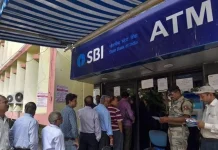The Income Tax Department has increased the minimum monetary limit for filing appeals in tribunals, high courts and the Supreme Court. According to a circular of the Central Board of Direct Taxes (CBDT), tax officials can file an appeal before the ITAT, high courts and the Supreme Court if the disputed tax demand exceeds Rs 60 lakh, Rs 2 crore and Rs 5 crore respectively.
The government had in 2019 set the limit for filing appeals in the Income Tax Appellate Tribunal (ITAT) at Rs 50 lakh, Rs 1 crore in high courts and Rs 2 crore for the Supreme Court. The Central Board of Direct Taxes (CBDT) also said that the monetary limit with respect to filing appeals/SLPs (special leave petitions) will apply to all cases including those related to TDS/TCS.
It said, SLPs/appeals pending in the Supreme Court, High Courts and Tribunals which are below the prescribed limit should be withdrawn. CBDT said, “As a step towards managing litigation, it has been decided by the Board to revise the monetary limits for filing appeals in income tax cases…”
The circular said appeals should not be filed merely because the tax effect in a case exceeds the prescribed monetary limit, but should instead be decided on the merits of the case. “The concerned authorities should keep in mind the overall objective of reducing unnecessary litigation and providing certainty to taxpayers with regard to their income tax assessments while taking decisions regarding filing of appeals,” it said.
Finance Minister Nirmala Sitharaman in her Budget speech on July 23 proposed to increase the monetary limit for filing appeals related to direct tax, excise duty and service tax in tax tribunals, high courts and the Supreme Court to Rs 60 lakh, Rs 2 crore and Rs 5 crore respectively.
Rajat Mohan, executive director of accounting and consulting firm Moore Singhi, said that these higher limits for taxpayers reduce the risk of lengthy litigation and promote quick resolution at the initial stages. Sandeep Jhunjhunwala, partner at business consulting firm Nangia Andersen LLP, said that this amendment in the monetary limit will significantly reduce the burden on judicial bodies, which will lead to more efficient resolution of large tax disputes.
Related Articles:-
Income Tax: Government has brought this scheme for taxpayers, know from which date it is starting
Govt has expanded the scope of Ayushman Bharat scheme, know the process to apply
Bank Holiday: Banks will remain closed today on Saturday, check why RBI has declared holiday













